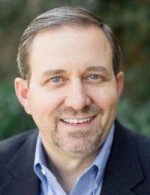Missions Week 2021: Tuesday
MEDSEND – MORGAN BOARDMAN

MedSend makes it possible for highly qualified and dedicated Christian healthcare professionals to bring healthcare – and the good news of Jesus’ love – to people in need around the world. MedSend healthcare professionals staff and run mission hospitals and rural clinics and are involved in community health education and training and mentoring Christian caregivers.
Q: How did God call you to serve where you are?
For me personally, God began to lead me into ministry as an 8thgrader at church camp. I thought that would mean working in the church as a pastor or church leader like my dad, but the Lord had other ideas. When I saw how God was using healthcare and medicine to bring the hope of Christ in places where other forms of mission work are not possible, I knew this was what God was calling me to. My passion is for all to know the love of Christ and have the hope of eternity. Through MedSend the doors are open wide to bring healing and the hope of the gospel.
For the many MedSend healthcare missionaries you help support, most also experienced God began to work in their lives in their formative years. I’ve heard it said that it is around the age of 10 to 12 where many of our missionaries felt the call of God to respond. Most get involved in mission work while they are in educational training on short term mission trips. God uses these experiences to open spiritual eyes to know the great need for healthcare missions around the world.
Q: What surprised you or caught you off guard when you started serving there?
For me personally, coming from a ministry background and not a healthcare background, I was not aware of how effective healthcare is at opening doors for spiritual conversation. Now I understand this model that Jesus himself showed us. Everywhere He went, He met physical need and then shared about His Father’s Kingdom.
For the many MedSend healthcare professionals you help support, they would tell you that the need is at times overwhelming. Serving in areas of the world where resources are highly limited it is very difficult emotionally and spiritually when the lack of available resources (medical equipment, electricity, clean water, consumables) create instances where it is simply not possible to solve the needs that are presented. Seeing death, particularly of the young, at levels that are unseen here in the US is very hard.For Example: Galmi Hospital in Niger, West Africa is the only hospital for 300 miles in any direction. An overwhelming portion of patients are Muslims. The lead physician there for many years was a MedSend Doctor. This hospital is also a training hospital for surgerons, through which the MedSend National Scholars Program funds international scholars.
Q: What is the one thing you wish the church knew but are nervous to tell them?
It is becoming more and more difficult for mission organizations in the present day. The world is more difficult and dangerous. We have heard reports that 50% of the nations of the world will not issue a missionary visa. Traditional forms of mission work is being stalled or completely stopped in some places. Today, we can still place a healthcare missionary in most of these countries, but we recognize that the window of open opportunity may be closing. We believe that we must move quickly to raise up equipped believers in these countries so that if and when we are no longer able to access these areas, there will be a remnant of Christ followers who will continue to share the good news of the gospel in their region. This is also why we believe equipping and training Christian nationals is critical. In Indonesia – the largest Muslim country in the world with 250M population – will not give medical visas. How far are behind are other Muslim countries? Somoliland, officially part of Somalia, the third most persecuting country in the world, has a MedSend professional serving in mental health. She has led many Yemeni refugees to become Christ followers and is building rapport with a Somali psychiatrist through her knowledge of trauma counseling. In this country mental health patients are chained up in deserted prisons most of the time. She is training the psychiatrist to use counseling, not just medication, to treat patients.
Q: What is your favorite moment or memory of sharing the Gospel or seeing somebody respond to it?
One of my favorite stories is hearing from a MedSend physician serving in a closed country in Asia. We will call her Jen. One of the first things that a missionary serving in these areas does is to attend language learning to be most effective in communicating with those they serve. During her (Jen’s) time in language learning she had a “house helper”. In certain regions, if you are from the west, it is expected that you will employ a local person to help with basic house duties. Jen begin to share Jesus with her house helper when she would come to cook or clean. One day the house helper had a headache and Jen asked if she could pray for her in the name of Jesus. The house helper said yes. The next day the house helper said “my headache is gone, your Jesus healed me”. Through continued conversations over the coming weeks the house helper became a follower of Christ. This opened the door to relationship with her husband and over 18 months of building a relationship with her husband, he too became a Christ follower. This opened the door to the rest of the family…aunts, uncles, etc. Today there is a house church meeting in Jen’s home where they read the scriptures and worship together. The house helpers family has helped Jen and her husband connect with areas in the region that are in great need of healthcare where others have access to healthcare and also the gospel and the hope that the house helpers family has discovered. During 2019, 8000 people became Christ followers through the combined ministries of MedSend supported missionaries.
Q: How have you seen God move in the midst of a global pandemic?
For most MedSend healthcare missionaries, dealing with pandemics and disease is part of what is expected. Covid-19 in these areas is another addition of a growing list of diseases including malaria, ebola, malnutrition, ricquets, and many other ailments. God has used this pandemic to open more doors for spiritual conversation around the world. For example in Ghana, where you are helping support a MedSend surgeon, the thought of “sheltering in” or a “lockdown” can be devastating. Just one day of not being able to work or go to the market to buy food could mean going without and if extended for a long period could lead to malnutrition or even starvation. The hospital there has two ventilators. A major outbreak and they would not be able to handle it. They can however share that there is a hope that trensends physical healing and give someone spiritual hope even in the most difficult of situations.
Q: What are the best ways the church can continue supporting you?
God is continuing to call young Christian healthcare professionals to go and serve, pray with us that they will continue to answer the call. Pray with us that borders open so MedSend healthcare providers can gain access to their areas of service. Pray for their safety and that God will continue to use this pandemic to open the door for spiritual conversations. Pray for the continued funding that is needed to support them and make it possible for them to serve. Pray that God will use this pandemic to remind those of us who have ready access to healthcare to understand the great need globally to serve those in the world who are in the greatest need.Share the need and opportunities with young people in the church. Perhaps God is preparing someone at PDCPC to be one of the next MedSend grant recipients, to go and serve through healthcare missions.
GOOD NEWS JAIL AND PRISON MINISTRY- A VIDEO UPDATE FROM DAN MATSCHE

